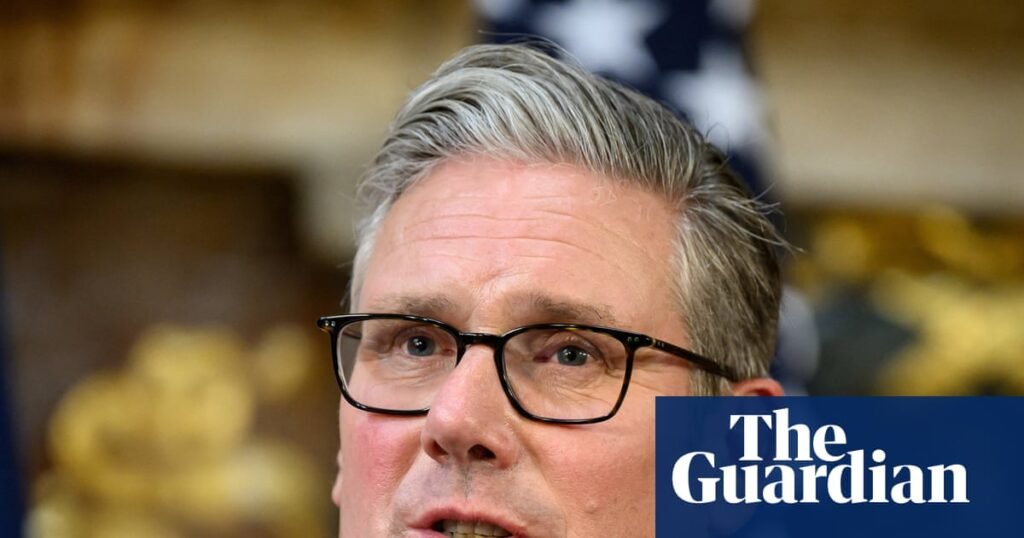UK Set to Recognize Palestinian State Amid Deteriorating Humanitarian Crisis
The UK government is poised to officially recognize the State of Palestine on Sunday. This decision is a response to the worsening humanitarian situation in Gaza and follows Israel’s failure to satisfy conditions laid out by Labour leader Keir Starmer earlier this year.
Context of the Recognition
Keir Starmer previously indicated in July that the UK would acknowledge Palestinian statehood before the upcoming United Nations General Assembly, contingent upon improvements in the regional situation. However, as conditions have deteriorated significantly, this recognition appears imminent.
Impact of Israeli Settlements
One driving factor behind this decision is the alarming acceleration of Israeli settlements in the West Bank, which have been viewed as endangering the possibility of a two-state solution. Labour leaders are keen to clarify that the recognition of Palestine is not a concession to Hamas but rather a necessary response to an escalating crisis characterized by increased settler violence.
The Situation in Gaza
As military offensives continue, airstrikes in Gaza City have resulted in numerous casualties, intensifying calls for humanitarian intervention. Thousands of citizens have protested in Israel, urging Prime Minister Benjamin Netanyahu to prioritize negotiations that may end the conflict. The realities of the humanitarian situation, marked by malnourishment and restricted aid access, have led to growing international concern.
International and Domestic Pressure
The decision to move forward with the recognition comes despite strong objections from the United States and family members of hostages held by Hamas. David Lammy, the UK’s Deputy Prime Minister, underscores that the recognition is largely due to the pressing issues in the West Bank and the consequences of ongoing violence.
Moreover, opposition from within the UK has surfaced following an open letter from families of hostages, who argue that this announcement could complicate their efforts to secure the release of their loved ones. Their plea is poignant: “Hamas has already celebrated the UK’s decision as a victory and reneged on a ceasefire deal.”
The UN General Assembly and International Response
Next week, high-level discussions at the UN General Assembly will bring global leaders together, where this recognition by the UK will likely dominate conversations. Starmer’s approach represents a significant deviation from the policies of former U.S. President Donald Trump’s administration, which remained staunchly opposed to formal recognition of Palestine.
In July, Starmer had expressed that the UK’s recognition was conditional upon Israel making significant commitments towards a ceasefire and facilitating the resumption of humanitarian aid through the United Nations. However, the current Israeli government’s stance suggests that these conditions are unlikely to be met anytime soon.
According to records, the State of Palestine currently enjoys recognition from 147 of the UN’s 193 member states, indicating a significant level of international acknowledgment despite ongoing tensions.
Future Implications of Recognition
The Labour party has stated that recognition does not equate to endorsing Hamas, emphasizing that the militant group will not be involved in Gaza’s future governance. Additionally, the UK is likely to impose further sanctions on Hamas while continuing to advocate for the release of hostages.
The Way Forward
As discussions progress at the UN, UK officials are urging further humanitarian access to alleviate the suffering endured by civilians in Gaza. Lammy comments, “We are very concerned about this continued offensive into Gaza City,” reflecting broader worries among international observers.
This recognition of Palestinian statehood represents a pivotal moment in UK foreign policy, revealing deepening complexities within Israeli-Palestinian relations. As the humanitarian crisis worsens, the international community will undoubtedly be watching closely to see how both the UK and Israel respond in the weeks ahead.


